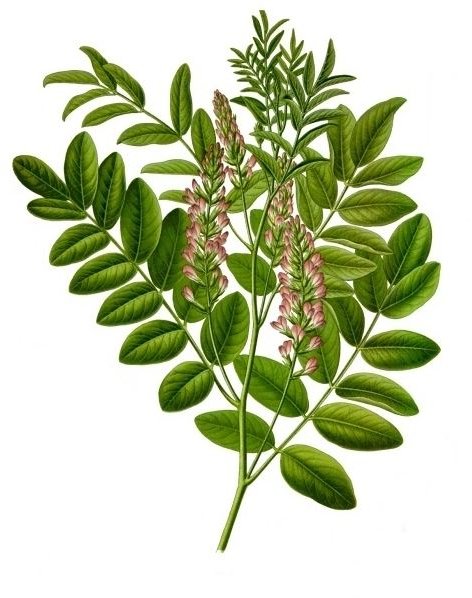Learn the Health Benefits of Licorice Root
Licorice
Licorice has been used for hundreds of years. The following are some of the many health benefits of licorice root:
Peptic Ulcers
Licorice has historically been used to treat peptic ulcers. Unlike antacids and drugs such as Zantac, Pepcid, and Tagamet, licorice protects the mucosal tissue of the gastrointestinal tract from gastric acid instead of neutralizing or suppressing gastric acid (needed to digest foods).
Licorice can raise blood pressure in individuals who have hypertension, so it should not be taken (or it may be given if closely monitored). However, these individuals can still benefit from licorice in another form, deglycyrrhizinated licorice (DGL), when treating peptic ulcers. DGL is licorice minus the compound glycyrrhetinic acid (responsible for increasing blood pressure). Glycyrrhizin is the active component of licorice and glycyrrhetinic acid is glycyrrhizin minus a small sugar molecule.
In one study, 100 patients received either DGL or Tagamet. After 6 and 12 weeks, the percentage of ulcers healed were similar in both groups.[1] Tagamet is associated with some toxicity. DGL is extremely safe to use and is significantly more cost effective.
HIV and AIDS
Preparations of licorice containing glycyrrhizin are showing promise in the treatment of HIV and AIDS, as well as hepatitis. One long-term study was performed on 16 HIV+ patients. None of the people who received glycyrrhizin progressed to AIDS or did their immune function deteriorate. Individuals who did not take glycyrrhizin, had a decrease in helper and total T-cell counts and antibody levels. Two developed AIDS.[2]
Inflammatory Diseases
Licorice root benefits inflammatory diseases (such as arthritis, asthma, eczema, and bowel diseases) without suppressing the immune system like steroids do.
Herpes
Licorice can also be used topically to treat herpes outbreaks. Glycyrrhetinic acid has been shown to reduce pain and the healing time associated with genital herpes and cold sores.[3-4]
Other
Other health benefits of licorice root include treating menopausal symptoms, premenstrual syndrome, coughs, and canker sores. It also helps in weight control, balances hormones, controls blood sugar, and acts as a laxative and diuretic.
Taking Licorice Root
To make licorice tea, pour 1 cup of boiling water over 1 teaspoon of licorice root powder and steep for 5 minutes.
You can also chew on whole sticks to extract the juice.
If you take DGL capsules, you must chew on them to get the benefits (saliva activates DGL).
References
- [1] Gut 23 (1982): 545-51
- [2] Int Conf AIDS 9(1) (1993): 234 (abstract no. PO-A25-0596)
- [3] Br J Oral Maxillofac Surg 22 (1984): 138-45
- [4] Br J Ven Dis 60 (1984): 178-81
Disclaimer
Please read this disclaimer regarding the information contained within this article.
